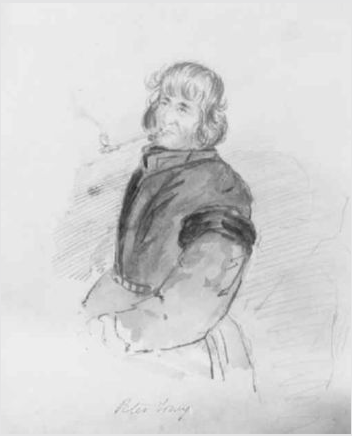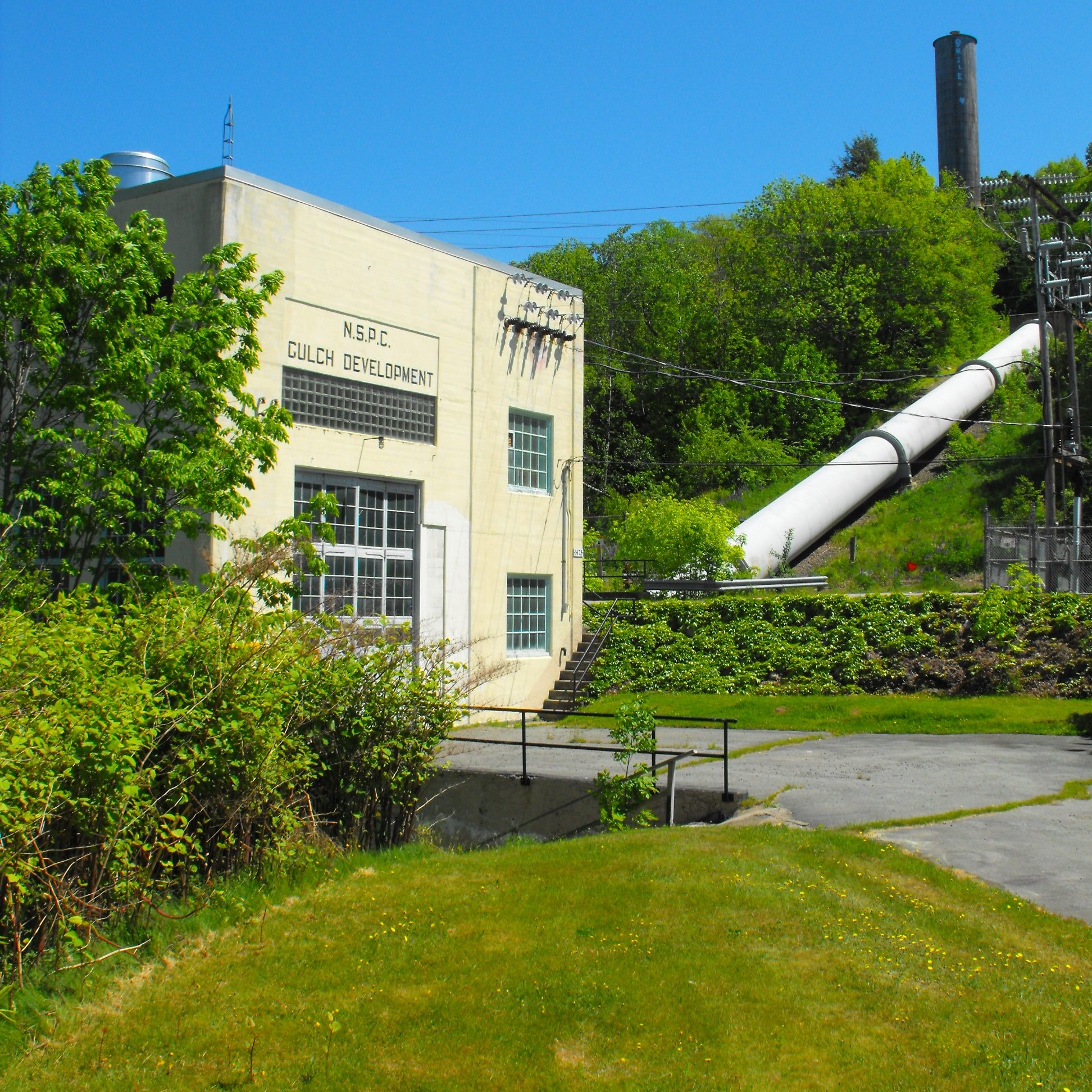|
Peter Paul Toney Babey
Peter Paul Toney Babey, (fl. 1849–1855) was a Mi'kmaw chief, also known as Peter Bobbeie, from Nova Scotia. He was born about 1800 and led a Mi'kmaw band living at Bear River. The Mi'kmaq were struck by a famine in the mid-1840s and the Nova Scotia House of Assembly The Nova Scotia House of Assembly (french: Assemblée législative de la Nouvelle-Écosse; gd, Taigh Seanaidh Alba Nuadh), or Legislative Assembly, is the deliberative assembly of the General Assembly of Nova Scotia of the province of Nova Scotia ... decided to pay their medical bills. This proved to be popular among the Mi'kmaq and an expensive undertaking for the government. Babey, who said he was a medicine man (doctor) with 25 years of experience, wanted compensation for his work among the population. This was in 1852 and, after a rather light hearted, facetious debate, the assembly did nothing. Again in 1855, Babey brought the medical plight of his people before the assembly with another petition. This time a ... [...More Info...] [...Related Items...] OR: [Wikipedia] [Google] [Baidu] |
Floruit
''Floruit'' (; abbreviated fl. or occasionally flor.; from Latin for "they flourished") denotes a date or period during which a person was known to have been alive or active. In English, the unabbreviated word may also be used as a noun indicating the time when someone flourished. Etymology and use la, flōruit is the third-person singular perfect active indicative of the Latin verb ', ' "to bloom, flower, or flourish", from the noun ', ', "flower". Broadly, the term is employed in reference to the peak of activity for a person or movement. More specifically, it often is used in genealogy and historical writing when a person's birth or death dates are unknown, but some other evidence exists that indicates when they were alive. For example, if there are wills attested by John Jones in 1204, and 1229, and a record of his marriage in 1197, a record concerning him might be written as "John Jones (fl. 1197–1229)". The term is often used in art history when dating the career ... [...More Info...] [...Related Items...] OR: [Wikipedia] [Google] [Baidu] |
Mi'kmaq People
The Mi'kmaq (also ''Mi'gmaq'', ''Lnu'', ''Miꞌkmaw'' or ''Miꞌgmaw''; ; ) are a First Nations people of the Northeastern Woodlands, indigenous to the areas of Canada's Atlantic Provinces and the Gaspé Peninsula of Quebec as well as the northeastern region of Maine. The traditional national territory of the Mi'kmaq is named Miꞌkmaꞌki (or Miꞌgmaꞌgi). There are 170,000 Mi'kmaq people in the region, (including 18,044 members in the recently formed Qalipu First Nation in Newfoundland.) Nearly 11,000 members speak Miꞌkmaq, an Eastern Algonquian language. Once written in Miꞌkmaw hieroglyphic writing, it is now written using most letters of the Latin alphabet. The Mi'kmaq, Maliseet, and Pasamaquoddy nations signed a series of treaties known as the Covenant Chain of Peace and Friendship Treaties with the British Crown throughout the eighteenth century; the first was signed in 1725, and the last in 1779. The Miꞌkmaq maintain that they did not cede or give up the ... [...More Info...] [...Related Items...] OR: [Wikipedia] [Google] [Baidu] |
Nova Scotia
Nova Scotia ( ; ; ) is one of the thirteen provinces and territories of Canada. It is one of the three Maritime provinces and one of the four Atlantic provinces. Nova Scotia is Latin for "New Scotland". Most of the population are native English-speakers, and the province's population is 969,383 according to the 2021 Census. It is the most populous of Canada's Atlantic provinces. It is the country's second-most densely populated province and second-smallest province by area, both after Prince Edward Island. Its area of includes Cape Breton Island and 3,800 other coastal islands. The Nova Scotia peninsula is connected to the rest of North America by the Isthmus of Chignecto, on which the province's land border with New Brunswick is located. The province borders the Bay of Fundy and Gulf of Maine to the west and the Atlantic Ocean to the south and east, and is separated from Prince Edward Island and the island of Newfoundland by the Northumberland and Cabot straits, ... [...More Info...] [...Related Items...] OR: [Wikipedia] [Google] [Baidu] |
Bear River (Nova Scotia)
__NOTOC__ The Bear River is a minor river in western Nova Scotia, Canada. Flowing from south to north, it is long from its headwaters to its discharge into the Annapolis Basin, some east of Digby. The river is tidal for the last of its length. The village of Bear River (which today calls itself "The Tidal Village") is situated near the head of the tide where shipbuilding took place in the nineteenth century. The river lies within an area long-occupied by native Mi'kmaq people, embodied today by members of the Bear River First Nation who still reside on the river. The native name for the river is L'sitkuk, (pronounced "elsetkook"). The area was settled by European settlers at nearby Port Royal at the start of the seventeenth century. Samuel de Champlain called it Rivière St. Antoine (St. Anthony's River) on his first map, but the name did not survive. In 1609 it appeared as Rivière Hébert (probably for Louis Hébert) on Lescarbot's map and the name held. It was altered fo ... [...More Info...] [...Related Items...] OR: [Wikipedia] [Google] [Baidu] |
Nova Scotia House Of Assembly
The Nova Scotia House of Assembly (french: Assemblée législative de la Nouvelle-Écosse; gd, Taigh Seanaidh Alba Nuadh), or Legislative Assembly, is the deliberative assembly of the General Assembly of Nova Scotia of the province of Nova Scotia, Canada. The assembly is the oldest in Canada, having first sat in 1758, and in 1848 was the site of the first responsible government in the British Empire. Bills passed by the House of Assembly are given royal assent by the Lieutenant Governor of Nova Scotia in the name of the King. Originally (in 1758), the Legislature consisted of the Crown represented by a governor (later a lieutenant governor), the appointed Nova Scotia Council holding both executive and legislative duties and an elected House of Assembly (lower chamber). In 1838, the council was replaced by an executive council with the executive function and a legislative council with the legislative functions based on the House of Lords. In 1928, the Legislative Council was abo ... [...More Info...] [...Related Items...] OR: [Wikipedia] [Google] [Baidu] |
19th-century First Nations People
The 19th (nineteenth) century began on 1 January 1801 ( MDCCCI), and ended on 31 December 1900 ( MCM). The 19th century was the ninth century of the 2nd millennium. The 19th century was characterized by vast social upheaval. Slavery was abolished in much of Europe and the Americas. The First Industrial Revolution, though it began in the late 18th century, expanding beyond its British homeland for the first time during this century, particularly remaking the economies and societies of the Low Countries, the Rhineland, Northern Italy, and the Northeastern United States. A few decades later, the Second Industrial Revolution led to ever more massive urbanization and much higher levels of productivity, profit, and prosperity, a pattern that continued into the 20th century. The Islamic gunpowder empires fell into decline and European imperialism brought much of South Asia, Southeast Asia, and almost all of Africa under colonial rule. It was also marked by the collapse of the large ... [...More Info...] [...Related Items...] OR: [Wikipedia] [Google] [Baidu] |
Indigenous Leaders In Atlantic Canada
*
*
{{disambiguation ...
Indigenous may refer to: *Indigenous peoples *Indigenous (ecology), presence in a region as the result of only natural processes, with no human intervention * Indigenous (band), an American blues-rock band * Indigenous (horse), a Hong Kong racehorse * ''Indigenous'' (film), Australian, 2016 See also * Disappeared indigenous women *Indigenous Australians * Indigenous language * Indigenous religion * Indigenous peoples in Canada *Native (other) Native may refer to: People * Jus soli, citizenship by right of birth * Indigenous peoples, peoples with a set of specific rights based on their historical ties to a particular territory ** Native Americans (other) In arts and enterta ... [...More Info...] [...Related Items...] OR: [Wikipedia] [Google] [Baidu] |
Year Of Birth Unknown
A year or annus is the orbital period of a planetary body, for example, the Earth, moving in its orbit around the Sun. Due to the Earth's axial tilt, the course of a year sees the passing of the seasons, marked by change in weather, the hours of daylight, and, consequently, vegetation and soil fertility. In temperate and subpolar climate, subpolar regions around the planet, four seasons are generally recognized: spring (season), spring, summer, autumn and winter. In tropics, tropical and subtropics, subtropical regions, several geographical sectors do not present defined seasons; but in the tropics#Seasons and climate, seasonal tropics, the annual wet season, wet and dry seasons are recognized and tracked. A calendar year is an approximation of the number of days of the Earth's orbital period, as counted in a given calendar. The Gregorian calendar, or modern calendar, presents its calendar year to be either a common year of 365 days or a leap year of 366 days, as do t ... [...More Info...] [...Related Items...] OR: [Wikipedia] [Google] [Baidu] |





